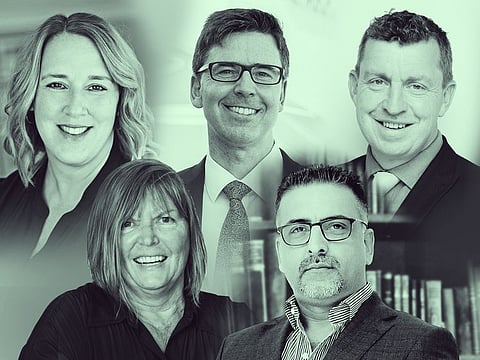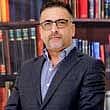How UAE schools are supporting student success in the classroom and beyond
Educators discuss how they can get students ready for real life

“We ensure our students are successful long after they leave the campus”
Amy Greene, High School Principal, American Community School of Abu Dhabi (ACS)

Ensuring students are equipped with career readiness skills starts at school. How do you bring career readiness into your classroom?
According to the World Economic Forum’s Future of Jobs 2020 report, critical thinking and problem-solving top the list of skills employers believe will grow in prominence in the next five years. At ACS, these skills are intentionally embedded in the curriculum, lessons and experiences.
ACS ensures our students are successful long after they leave the campus by offering internship, mentoring opportunities and career fairs. Our internship programme enables students to have real work experience and develop valuable skills for the workplace. Our students access our robust global alumni network for mentoring opportunities, while being supported by on-campus counsellors for long-term planning. ACS hosts career fairs where students engage in discussions with professionals to explore their future interests and work opportunities. Additionally, students access a web-based college and career resource tool featuring career aptitude tests, resume builders and more.
How important is parent-teacher collaboration for student success?
Our ACS community thrives because of the partnership between parents, students and teachers. With parent-student-teacher conferences, coffee mornings, learning exhibitions, PTA, parent liaisons and more, collaboration between parents and teachers ensures the success of all students.
“Our goal is to strive successfully for happiness”
Michael Lummel, Principal, German International School of Dubai (DISD)

Preparation for careers should begin in school. How do you get students ready for real life?
The slogan of our mission statement is “Global citizens set sail”. DISD is an innovative and learning school. We continuously strive for excellence in all categories. We believe our students have a flying start passing their final Abitur exams at DISD. Every secondary school student is undergoing a systematic multilingual job application and interview training. One-on-one job consultations with an expert from Germany are an excellent opportunity to find tailormade career paths. Guest speakers from renowned international universities inspire our students.
In our new PASCH exchange programme, secondary II students visit German universities and renowned German international companies to launch international careers. We have been welcomed as new Junior Engineer Academy by the German Telecom Foundation. In this spellbinding co-curricular programme students experience close contacts with top STEM companies and universities in the UAE.
What are the various pedagogical approaches you implement to enhance student learning and engagement?
Learning at DISD is based on common values. That is an important basis for learning and engagement. DISD strives for fair, tolerant and humane interaction within our school family on a daily basis. Our students experience and learn a sense of responsibility, creativity and critical thinking. We stand for traditional values such as determination and discipline, which we regard as modern key competencies. Our goal is to strive successfully for happiness.
“Today’s graduates may have 10 different jobs before the age of 40”
Zubair Ahmad, Head of Operations, Springdales School, Dubai

Students can no longer afford to move on to university with the vague notion of starting a career thereafter. How do you help them become future- and career-ready from an early age?
Springdales knows that today’s graduates may have 10 different jobs before the age of 40. We believe that our students need to be prepared for jobs that do not exist yet. After all, who would’ve thought even five years ago that social media influencer would be such a sought-after profile.
We have already begun school-based career fairs, along with a long-standing partnership providing students access to online career fairs. Both of these are heavily focused on overseas universities. We have also initiated an alumni programme that is available through our website and a mobile app so students and families can get real-life information directly from former students and their families.
How is Springdales navigating the challenges of contemporary education?
One of our strategies is to work on developing skills that will position young learners for careers that are not replaceable by technological advances. These skills will prepare them for creative careers like scientists, novelists, and artists; complex and strategic jobs such as CEOs, diplomats, and economists; and roles that require empathy such as teachers, doctors and nurses. These skills will stand them in good stead even for jobs that don’t exist today like being a fleet operator for self-driven trucks.
“Topics and themes are linked to real life and issues that matter to students”
Patrick Affley, Principal, Dove Green Private School (DGPS)

With sectors and industries undergoing rapid transformation, how do you adapt your curriculum to ensure students will be ready to add value to the professional world in the future?
The school promotes a growth mindset for its students, teachers, staff and parents in the school. In all subjects, students are encouraged to develop their questioning skills and be adaptable, independent and flexible learners. All themes and topics are meaningful for children. Their choice of activities at the initial stage of a new topic being introduced enables them to have ownership of their learning. The curriculum is adapted to take into account their interests whereby topics and themes are linked to real life and issues that matter to them; for example, environmental and social issues.
What measures have you taken to strengthen parent-teacher collaboration for students’ success?
Parent-school partnership is vital to ensure that each child at DGPS gets the best educational experience possible. A mixture of in-person parent consultation meetings, curriculum workshops and shared learning platforms ensures that parents are fully informed and updated about their child’s progress and next steps in their learning. We promote the importance of educating parents to enable them to understand the different teaching and learning approaches that are being adopted in the school. The classroom environment has changed since they were students themselves, so openness and clarity about what and how we teach children are extremely important.
“The Australian curriculum is designed to produce agile, robust and independent learners”
Karen McCord, Executive Principal, Australian International School Dubai

With sectors and industries undergoing rapid transformation, how do you adapt your curriculum to ensure students will be ready to add value to the professional world in the future?
The Australian curriculum is designed to produce agile, robust and independent learners. Our focus is on developing students’ understanding of themselves as learners and in doing so, our aim is to ensure they develop resilience, strategies for investigation and skills to identify key information, then confidently demonstrate what they know and understand. Our learners are risk-takers who consistently love to explore the world around them.
How is AIS navigating the challenges of contemporary education, including the lasting trends sparked by Covid-19?
Because our curriculum is designed to be contextual and flexible in delivery, we have been well placed to add value to our children’s ability to develop as learners. Our curriculum delivery and underpinning philosophies have allowed us to easily transition children into the post-Covid world. They have demonstrated they truly are agents of their own learning and are proud of their growth over the year. We deliberately went back to basics after Covid with overwhelming support from our families. Children needed to re-engage their fine motor skills, put technology to the side for a while to realise learning doesn’t and shouldn’t always be underpinned by a technological focus and of course, spend time in the company of physical friends, talking, socialising and just being children.



